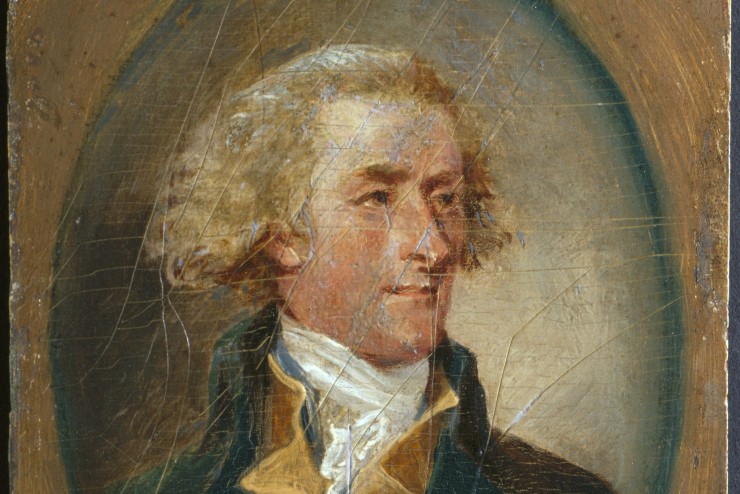Seven items, First, in 1776, in the first draft of the Declaration of Independence:

“He [the King of England] has waged a cruel war against human nature itself, violating its most sacred rights of life and liberty in the persons of a distant people who never offended him, captivating and carrying them into slavery in another hemisphere … . Determined to keep open a market where MEN should be bought and sold, he has prostituted his negative for suppressing every legislative attempt to prohibit or to retrain the execrable commerce.”
1779: Jefferson proposed a law for Virginia that would gradually emancipate the slaves.
1784: In Congress, Jefferson proposed a law to ban slavery from the Western territory of the USA. The proposal came within one vote of passing.
1787: Jefferson published Notes on the State of Virginia with a strong denunciation of slavery in Query 18. Also mentioned that “An inhuman practice once prevailed in this country of making slaves of the Indians.”
1807: As President, Jefferson urged Congress to abolish slavery, asking them to pass legislation to “withdraw the citizens of the United States from all further participation in those violations of human rights which have been for so long continued on the unoffending inhabitants of Africa.”
1809: Jefferson argued that blacks’ right to liberty does not depend on whether they are equal in abilities. Rights belong to humans, and all humans have them, whether their abilities are equal or not.: “but whatever may be the degree of talent it is no measure of their rights. Because Sir Isaac Newton was superior to others in understanding, he was not therefore lord of the person or property of others.” (Thomas Jefferson letter to Henri Gregoire, February 25)
All the above should be integrated with Jefferson’s continued ownership of slaves throughout his life.
Related:
Thomas Jefferson on the Declaration’s 50th anniversary.
My other posts on Jefferson.
Is slavery not a gradient? And at times a label? Were not the “convicts” transported to Australia by Britain (after abolishing slavery), merely slaves by another name?
It is my view, that a slave dreams not of freedom, but of being the master… And it seems that we are seeing a version of that now playing out by people who were never slaves themselves…
“All the above should be integrated with Jefferson’s continued ownership of slaves throughout his life.”
Which means what? That he was inconsistent? A hypocrite?
Without legal reform, without the abolishment of slavery, which was not up to Jefferson alone, although he did fight for that end, had he “freed” his slaves, would his then former slaves be free . . . or just the slaves of another master? It might have been better for him, but would it have been better for them?
Thomas Sowell argues in his book Black Rednecks and White Liberals, in the section “The Real History of Slavery,” that there was significant concern that the former slaves would have gone to war against the whites if and when they were freed, and people knew that justice would have been on their side for doing so. And, as Sowell puts it:
“Like Burke and Randolph, Jefferson did not see slavery as an abstract issue. He saw the heavy moral stigma of slavery but also the social dangers to flesh and blood people. He wrote in a letter to John Holmes in 1820:
” ‘I can say, with conscious truth, that there is not a man on earth who would sacrifice more than I would to relieve us from this heavy reproach, in any practicable way. The cession of that kind of property (for so it is misnamed) is a bagatelle, which would not cost me a second thought, if in that way a general emancipation and expatriation could be effected; and gradually, and with due sacrifices, I think it might be. But, as it is, we have the wolf by the ears, and we can neither hold him nor safety let him go. Justice is in one scale, and self-preservation in the other.’ ”
See here for a comment and then the transcript of his short letter:
https://www.loc.gov/exhibits/jefferson/jeffwest.html#159